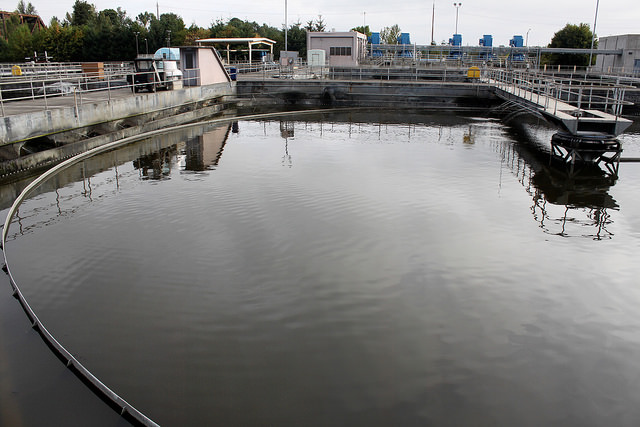Wastewater treatment, whether it’s municipal, industrial, or otherwise in nature, is a complicated process. From pumping stations to chemical feeds, aeration basins, mixing vessels, and more, there are a number of treatment areas each with their own operations and requirements. One need that’s consistent across nearly every stage is liquid level monitoring and control. Specific applications can include but are not limited to:
• High-level alarms and emergency shut-offs • Storage inventory detection
• Low-level alarms and leak detection • Chemical mixing and batching
• Wet well and sump pumps • Bar screen differential control
Types of Liquid Level Sensors for Wastewater Treatment
 Ultrasonic Liquid Level Sensors
Ultrasonic Liquid Level Sensors
Ultrasonic liquid level sensors work by emitting ultrasonic sound pulses and measuring the length of time it takes for the pulse to bounce off of the liquid surface and return. Due to this non-contact operation and the problematic nature of much of the liquid media involved, ultrasonic level sensors are common in wastewater treatment. They also provide the benefit of offering continuous rather than simple point-level measurement.
 Submersible Pressure Level Sensors
Submersible Pressure Level Sensors
These devices measure liquid levels by continuously measuring hydrostatic pressure from the bottom of the tank or vessel. The more liquid sits on top, the greater the pressure. Because they can be made with output cables of nearly any span, they are useful in applications with particularly deep and/or narrow tanks. Like ultrasonic level sensors, they provide continuous measurement.
 Optical Liquid Level Sensors
Optical Liquid Level Sensors
Optical liquid level sensors are used for point-level sensing where traditional float switches are not ideal, as is often the case in wastewater treatment applications where solids buildup can interfere with their free movement. Optical level sensors have no moving parts, and can be made with durable stainless steel for harsh environments. Optical level sensors work by detecting the presence or absence of fluid based on its interference with an infrared light in the tip.





